“Truths” we were told as kids
We now know many of the things our parents told us when we were younger are not so credible after all – I mean, do you still believe that wounds heal better when exposed to the air? But hearsay and old wives tales were the internet before The Internet. They were our parents’ ways of learning about the best new places to go and “health hacks” they heard from Jenny’s mum’s sister’s boyfriend.
Since then, Singapore has undergone many changes, and old wives’ tales can be debunked with quick Google searches. These unfounded myths have got to stop. Here are 10 “health hacks” we were taught as children that are completely untrue.
1. Apply toothpaste on scalds for a quicker cure
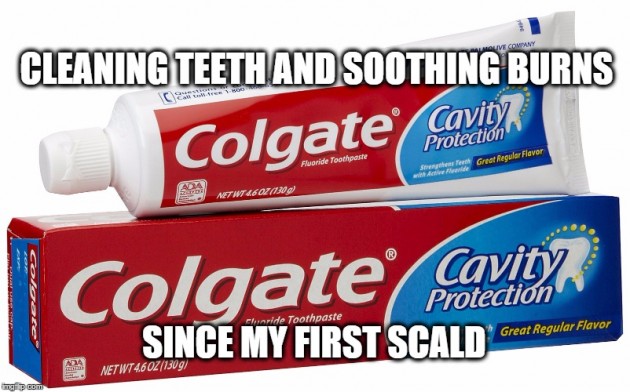
They said: Use toothpaste to soothe your scalds and make them disappear. After all, it leaves a “cool” feel on the skin, which “counters” the burn.
The truth: Applying toothpaste to a scald is possibly the worst thing you can do to it. The minty minty feel will soon morph into a terrible nightmare of burning sensations, affecting the skin tissue.
Another reason using toothpaste to soothe burns is a bad idea is because most toothpastes contain harmful chemicals like calcium and peppermint, which increase the risk of contracting infections. Yikes!
2. Tilting your head back when you have a nosebleed will “recycle the blood”
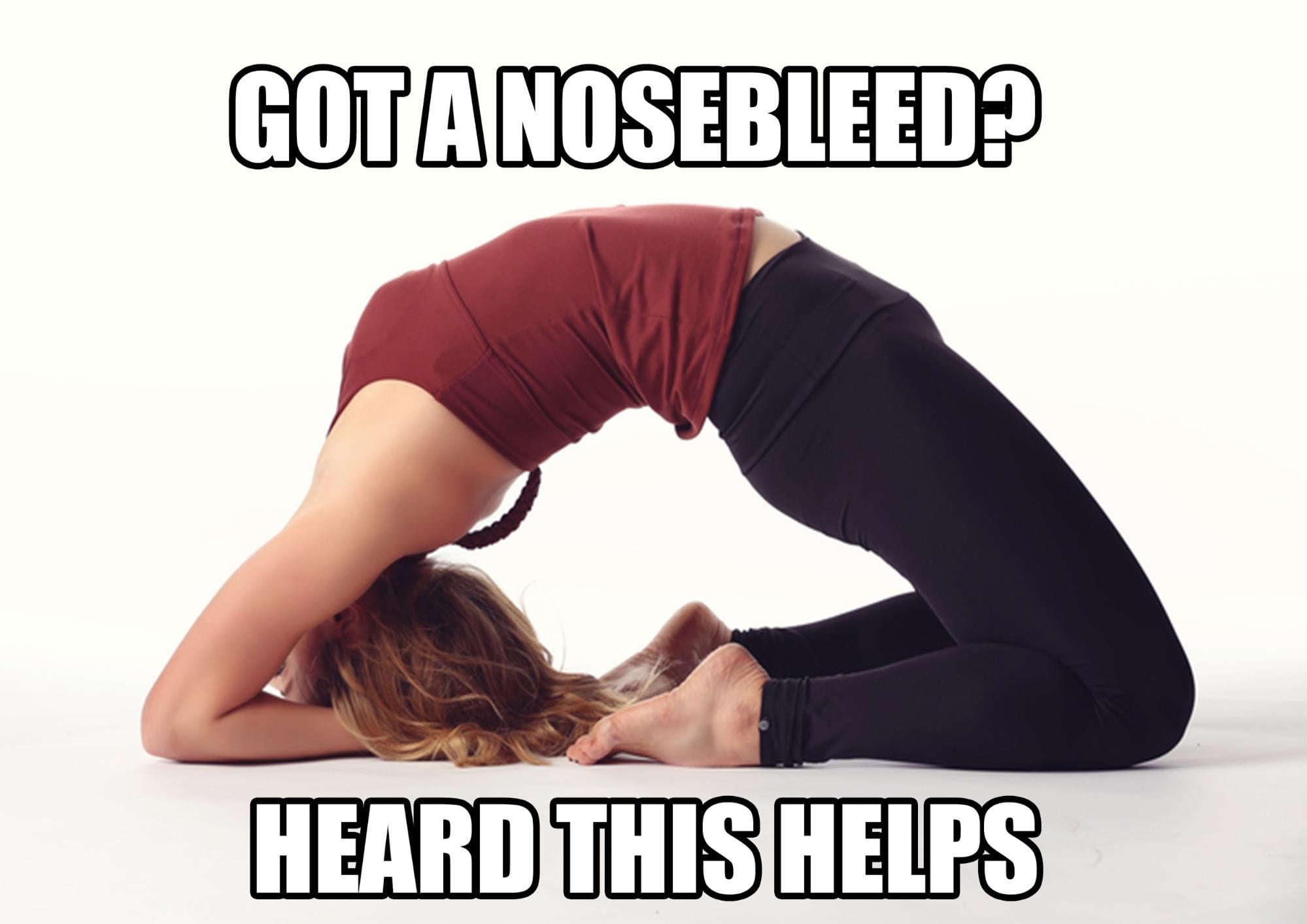
They said: Tilting your head back during a nosebleed will “return” the blood back to the body, cutting blood loss.
The truth: Doing that leads to blood running into your throat, which could cause you to choke. Tilting your head back does nothing but create blood clots that restrict the blood flow to other parts of the body, potentially harming your life.
If you get a nosebleed, keep calm and tilt your head forwards and gently pinch the bridge of your nose. Applying pressure helps to stop the blood flow and the nosebleed usually stops within 10 minutes of steady pressure.
If you get frequent nosebleeds, your body could be constantly dehydrated, so install a humidifier in your home or drink at least 8 glasses of water a day.
3. Drinking soy sauce makes your wound darker
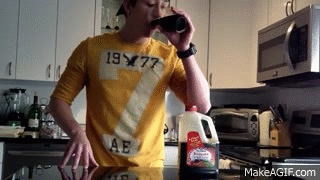
Source Seriously kids, don’t even attempt to do this.
They said: Legend had it that pigments in dark soya sauce caused scabs to blacken and leave blemishes for life.
The truth: According to the experts at Health Promotion Board, your skin turns black mostly because you’ve been scratching that wound. Scratching the wound affects the healing process and increases the risk of bacterial infection, resulting in the blackness of the skin.
If this myth were true, we would have to eat half boiled eggs without soya sauce, which would be sacrilege. If the thought of darkened skin scares you, keep your fingers away the itch and use calamine lotion instead.
4. Run into the sea to cure your cuts
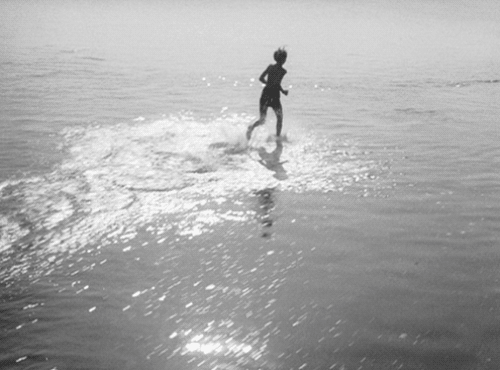
They said: Salt quickens the healing process of cuts and wounds. So the next time you get a cut, head straight for the beach and soak in free salt water!
The truth: Yes, salt water speeds up the healing of wounds, but don’t forget how polluted most beaches are. The seawater doesn’t only have salt and water – it has impurities that are reproducing freely at warm temperatures.
You don’t know what’s lurking in the waters lying in wait to infect your wounds, so it’s safer to clean your wound in a sterile environment. Plus, you don’t want your bodily fluids to touch other people, right? That would be gross.
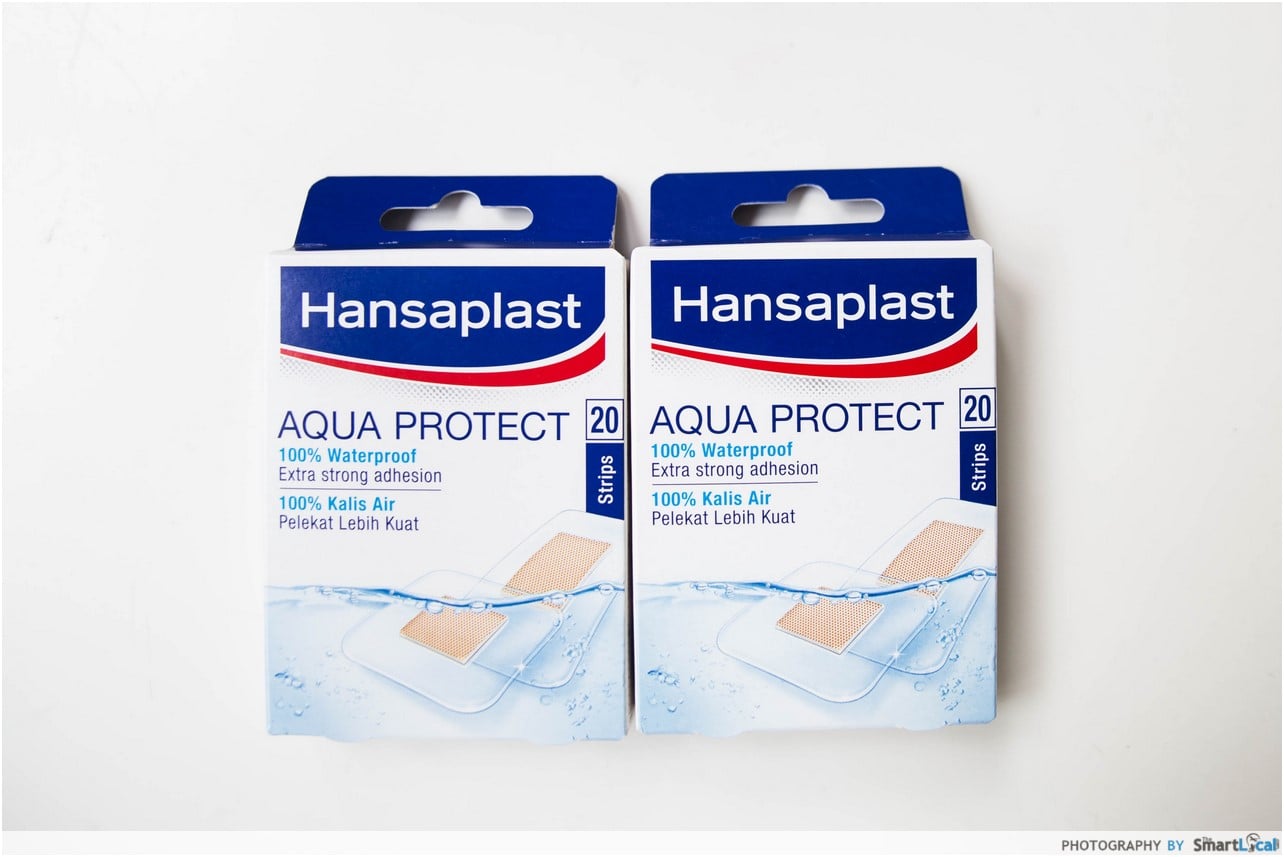
Wounds should be protected against water, but regular plasters hanging from your skin aren’t a pretty sight at the waterpark. Use a completely waterproof plaster like the Hansaplast Aqua Protect plaster to provide optimum protection while you’re having fun!
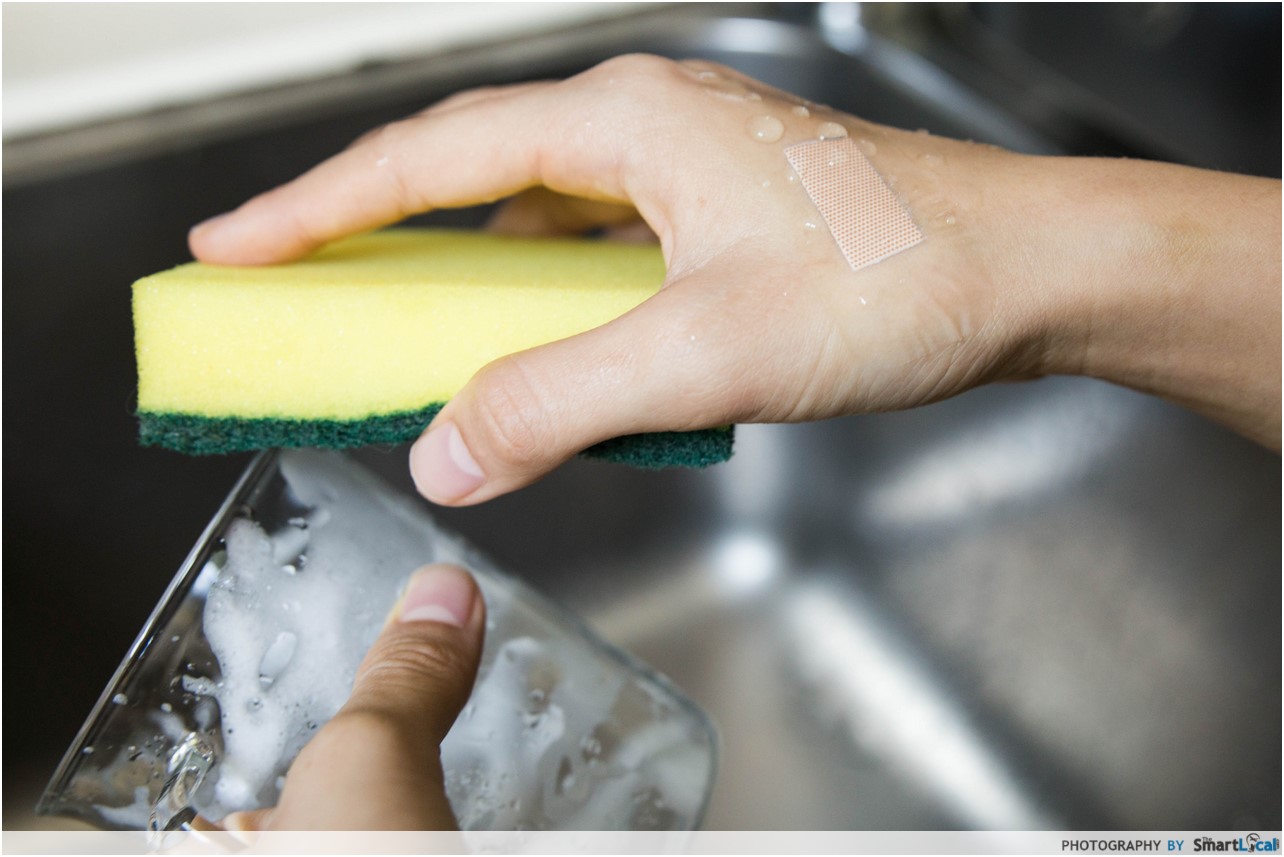
5. Rubbing a hard boiled egg over your bruise will clear it up

Source Got a bruise aaaaaand now it’s gone.
They said: An egg is the answer to your baluku and can ease blood circulation! All you have to do is hard boil it, peel it, then rub the egg on the affected area.
The truth: Using something hard and round like a hard boiled egg might sound like an effective way to ease a baluku, except that it’s really not. The friction could cause even more internal bleeding.
The best bet to reduce the internal bleeding is to apply an ice pack on the bruise, but be careful not to let the ice touch the skin directly to avoid ice burns! If the bruise stays longer than usual, be sure to let a doctor have a look at it for a professional diagnosis.
6. Run your burns under cold water to heal it quicker
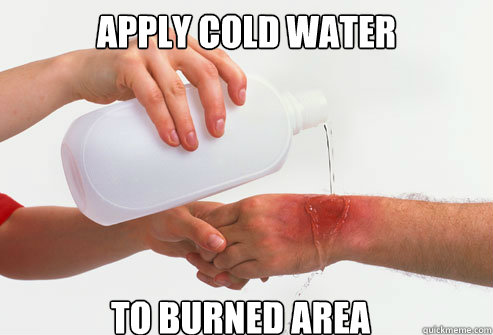
Burn, baby, burn. Source
They said: Running burns under cold water not only feels super shiok, but cooling burnt skin with cold water is the logical thing to do… right?
The truth: Running your burns under cold water is a no-go! In fact, it slows down the burn’s recovery. Instead, use warm water – it will help to limit tissue damage to the burnt areas. The heat from the warm water regulates your body temperature, providing a friendlier environment for your cells to repair themselves.
7. Eating chicken gives you phlegm
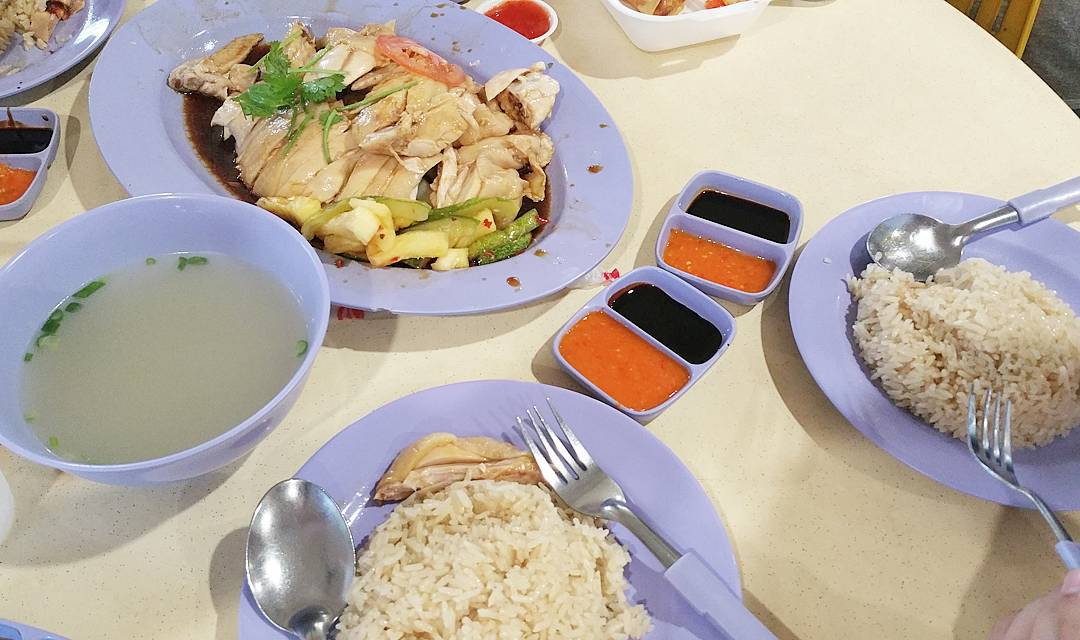
Source I thought you were my friend…/It’s always the ones you love which hurt you the most…
They said: When your throat gets itchy from all the late night indulgences, avoid chicken as it will give you an unwanted present: phlegm.
The truth: Err what? Ask any bodybuilder and he’d be able to tell you that food rich in protein like chicken is supposed to help the body win the battle against infections.
Although chicken is good against infections, it depends on how you eat it – fried chicken might be delicious but it isn’t going to help you when you’re sick. Boiled chicken, on the other hand, is a proven home remedy for colds and flus.
Moral of the story: Eat chicken when you’re sick, but make sure it’s boiled and not fried!
8. Coke is some kind of a miracle cure for flu and coughs
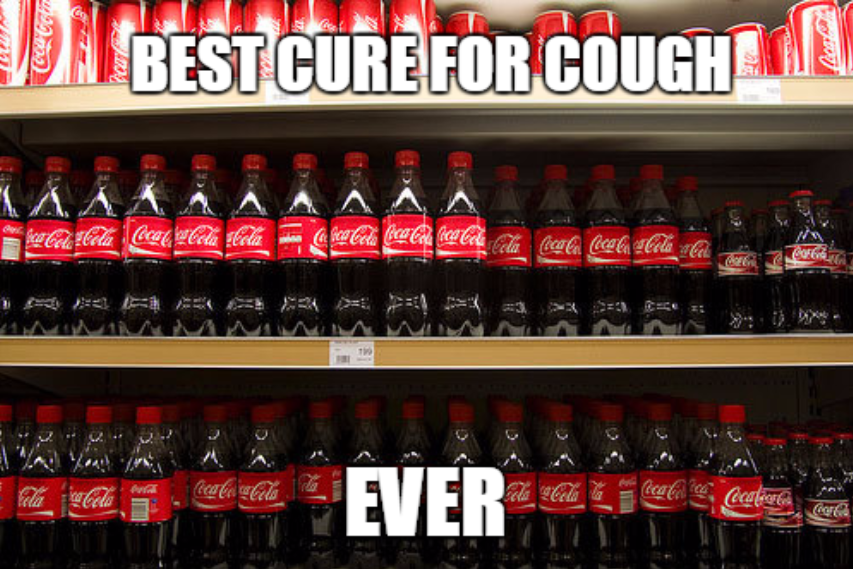
They said: Even among other “remedies” like ginger, salt and even Panadol, Coke was supposed to be the one to cure fevers and flu. It helped that Coke quenches your thirst too.
The truth: Since the flu is a virus, all you can do is strengthen your immune system to fight it. Coke doesn’t have the necessary nutrients to strengthen your immune system, and might even – gasp – make it worse with artificial sweeteners!
Take multivitamins and get 8hrs of beauty sleep and you’ll be kicking butt in no time, but Coke’s not helping here!
9. Wounds itch when they’re healing because of increased blood circulation

They said: Blood circulation improves when a wound is recovering, so when you feel an itch near your wound, it’s a good sign.
The truth: Yes, an itching feeling indicates the wound is healing, but it does NOT mean the blood circulation is improving there. You get an itch because of histamine that’s released during the recovery process.
To make the process easier to understand, histamine is an organic compound released by your cells that causes muscles tissues to contract and small blood vessels to expand. That’s the culprit that’s making you itch, not blood circulation!
10. Expose wounds to open air for faster healing

They say: “Don’t touch your wound!” The air has some magical properties that helps your wound to heal, pronto.
The truth: No, the air does not have any magic that will make your wound heal faster. In fact, by exposing your wound to the air, you run the risk that it could be aggravated by accidental friction.
You should always keep a wound clean, germ-free and protected as much as possible. So the best way to take care of a cut is to clean the wound with an alcohol-free wound spray, then apply a plaster to the injured area until it heals completely!
Myths Debunked
Ahgong and ahma have interesting stories, but they aren’t always be correct. If you aren’t careful, you might meet with more harm than good if you still follow these myths, especially those that concern open wounds!
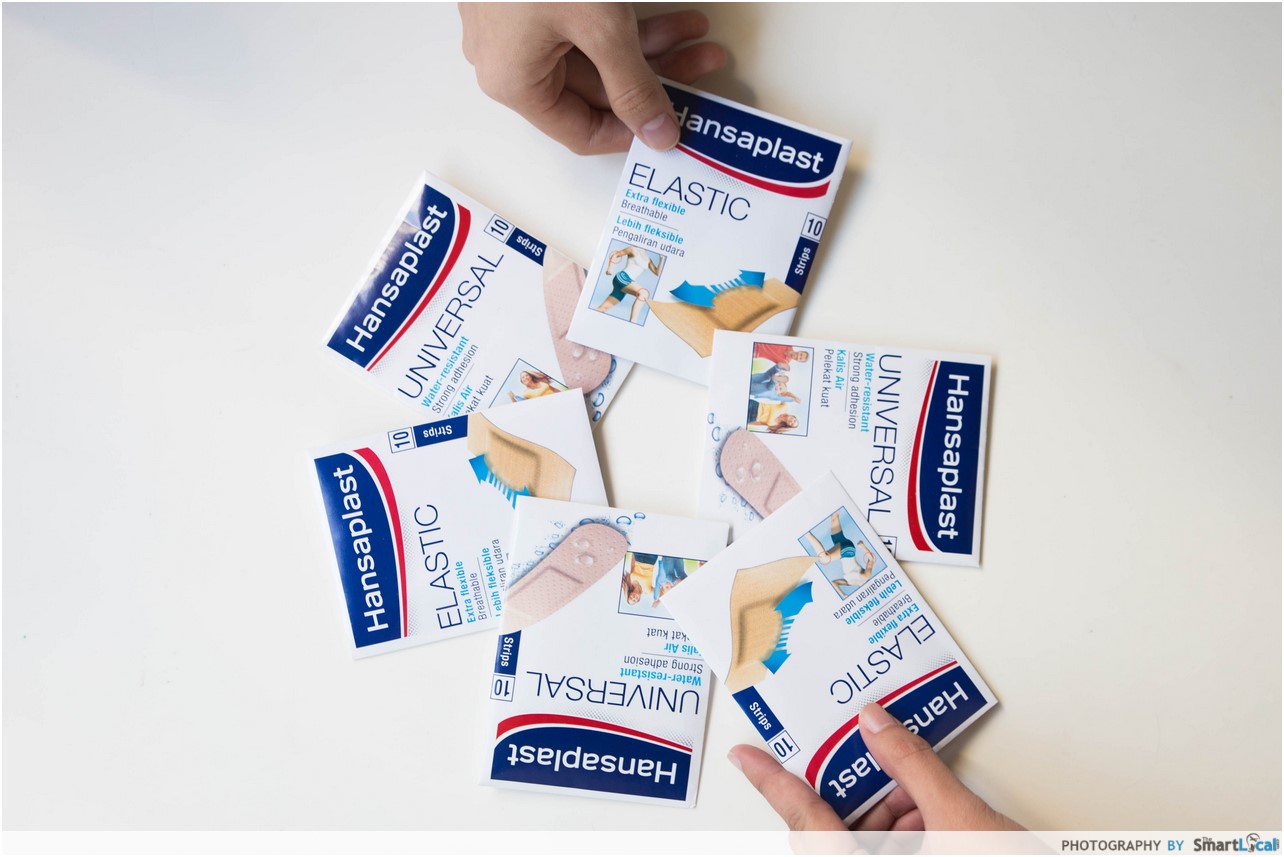
Keeping your wounds plastered up not only protects it from getting raided by nasty germs and bacteria, but also shields wounds from potential friction burns and scratches you’ll get. With the Hansaplast Universal Water Resistant plaster protecting it, your wound is in the optimal condition for healing – the plaster keeps water and dirt away, and the white non-stick pad cushions the wound.
In the month of March, Hansaplast Water Resistant 10s Twin Pack and Elastic 10s Twin Pack are available at selected Watsons and Guardian stores for only $2 a pack!
But of course, better safe than sorry. As much as technology has evolved to facilitate your wounds’ healing, stay safe so you won’t have to use them in the first place!
This post was brought to you by Hansaplast.
